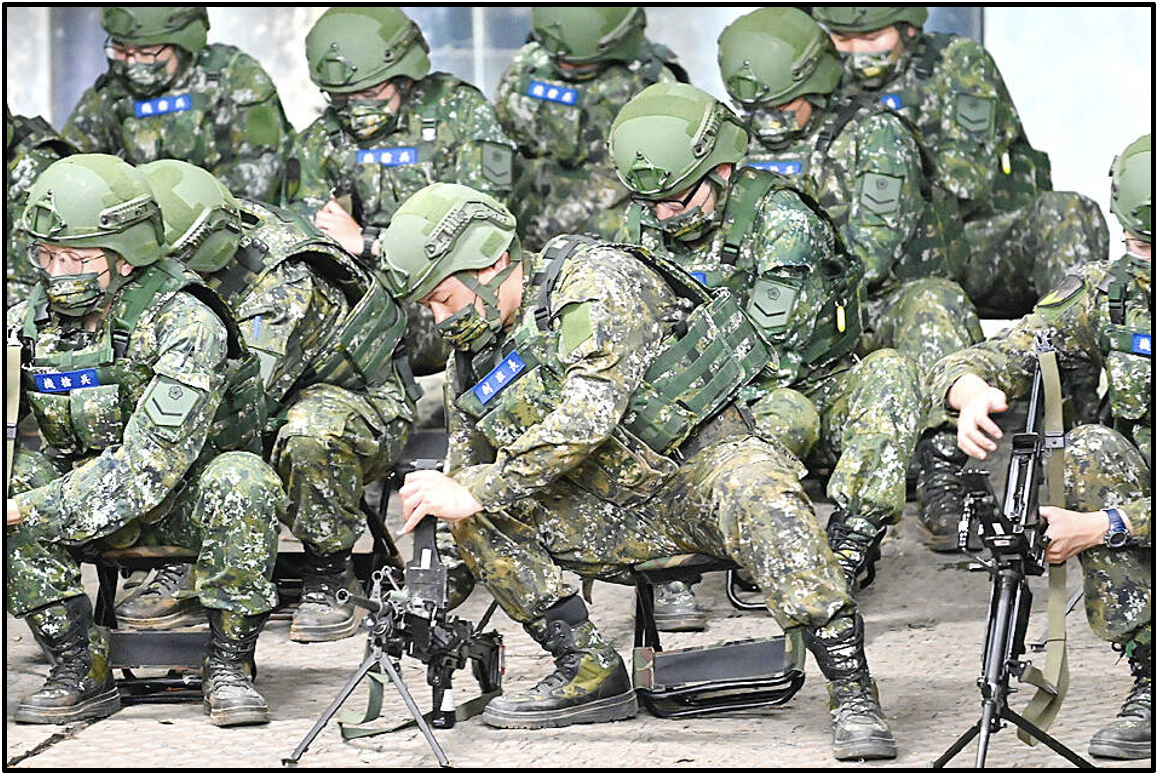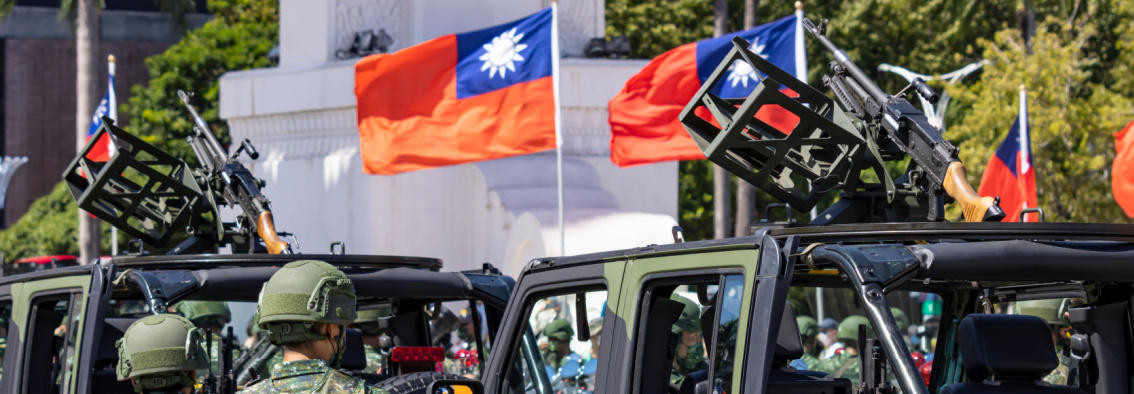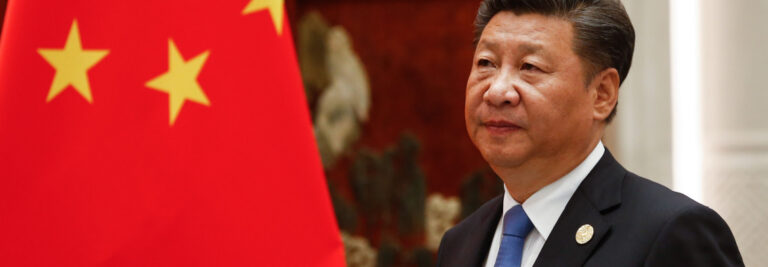The views and opinions of this piece are solely those of the author, and are not intended to represent those of the United States Air Force or the Department of Defense.
Recently, as part of professional career training, I spent two and a half months in Taiwan. My mission: to embed myself within the local populace and forge a better understanding of the Taiwanese people. Although I was born in Taiwan, visit frequently, and have dedicated years of education toward this region, my knowledge as a Taiwanese American differs from those who live on the island. I spoke with hundreds of Taiwanese people across different demographics, from college students to retirees. I engaged in these conversations in taxis, night markets, and hot spring bath houses. The primary goal of my inquiries was to gauge their thoughts on a potential People’s Republic of China (PRC) invasion, and their attendant will to fight. Their personal insights differ, and they offer better insight into the Taiwanese heart than those provided by the broader polls that are often cited on this issue. My findings from these conversations may surprise you. However, these are the ordinary people who will serve as the bulwark against threats to the island, and it is their voices that we should listen to.
Taiwanese Views on a PRC Invasion
Many Taiwanese view the prospects of a military invasion as a Western tagline. While PRC capabilities and pressures have certainly grown, most Taiwanese do not see a military operation as a likely scenario. Even with the Ukraine War in the background, they were quick to point out the differences between Ukraine and Taiwan—as well as those between the PRC and Russia—citing their geography and the different places each occupy on the international stage. Many also believe that the Chinese Communist Party’s (CCP, 中國共產黨) growing list of domestic issues will prevent it from pursuing military action against Taiwan. PRC ships and planes operating near Taiwan are viewed as annoying acts of showmanship rather than clear and present threats. Regardless of these assumptions, Taiwan continues to develop its defense capabilities with less than enthusiastic public support. This raises the issue of the Taiwanese will to fight.
For years now, there has been speculation on the Taiwan people’s will to fight. The value of this non-quantifiable aspect has been clearly demonstrated by Ukraine’s ferocious defense against Russia. However, the situation in Taiwan is deep and complex. There is a tumultuous relationship between the people and the military. The history of the island is defined by civil-military conflict stemming from violent crackdowns on dissent before and during the martial law era. Accordingly, there is still a mixture of contempt and distrust; and many view the military as an unnecessary budgetary strain because of its perceived incompetence and potential irrelevancy in a conflict. This is not just civilian hearsay. Taiwan has compulsory military service, meaning that all men I spoke with (besides the college students) have firsthand experience with military life, training, and readiness. I am not disrespecting Taiwan’s full time, active-duty, professional corps. They are a dedicated group who will defend the island to the death. But shortfalls in their training and readiness are a major concern. And in a conflict, Taiwan will rely heavily on its 2 million reserve members, which consist of part-time conscripts.
Almost all the conscripts I spoke with—except for those who served during heightened tensions in the 1980s and 1990s—had negative feedback regarding their training, sustainment, and readiness. Most said they received little tactical or operational combat training. Instead, most of their time was filled with administrative dealings and tasks, such as cleaning, painting buildings, and mowing the grass. After their two-year, one-year, or the current four-month commitment, conscripts would return sporadically for one to two weeks of continuation training. This continuation training is inconsistent and administered through a lottery system. Many of those I spoke with have never been called back in the one to five years since leaving their commitment period. Of those who were recalled for continuation training, most reported experiencing the same issues: minimal combat training and mostly administrative taskings. Due to this system, almost all believe it is a waste of time. This contributes to Taiwanese society’s distain for the military.
However, this does not reflect their fighting spirit. Based on my conversations, I estimate that roughly 70 percent would stay to fight against a Chinese invasion, 20 percent would leave Taiwan, and 10 percent would surrender. The Taiwanese are looking for the ability to fight to the best of their capability. From their perspective, this is contingent on two things: proper training and US support. These factors offer the Taiwanese the most important, yet intangible, element of them all: hope. With hope, they will continue fighting.
Like the Ukraine War, Taiwanese understand that it is unlikely that the US military will fight side-by-side with them. However, they look for assurances that the United States would have the commitment and resolve to provide non-combat support, especially in the realm of logistics. They understand the difficulties in sustaining supplies as an island—and even with proper training, they can only do so much if they run out of essentials. At this time, most who I spoke to are insecure regarding US support and what form it would take.

Image: ROC Army reservists conduct small arms familiarization training at a base near Taoyuan. (March 12, 2022). (Image source: Taipei Times)
Most military-age men I spoke with stated that they would fight to the end, but only if they had been provided with the necessary training and tools to make an attempt at a decent defense, and perhaps even a survivable one. Over and over again, they emphasized their refusal to be cannon fodder, needlessly sent to their deaths. It has been said before that the Taiwanese have grown soft over the last few decades of economic growth, and that there is no grit or determination in the face of struggle. Those that talked to me partially agree with this statement. None of them want war, but they want to be ready should war be forced upon them. They understand the grim situation, with one stating that “Taiwan is an island, there is no place for us to run.” This fighting spirit, perhaps born out of desperation, is alive and well. There have been improvements, such as increasing service commitment time from four months to one year and extending continuation training lengths. (Editor’s note: See earlier GTI analysis on announced reforms to Taiwan’s reserve system here.) However, these reforms are too modest and too slow. The content and scheduling of training needs to be overhauled with greater priority on the reserve force’s readiness.
What options are there? Brainstorming with local Taiwanese stakeholders yielded several proposals, as follow below.
First, to galvanize the population and invigorate Taiwan’s leadership to pursue necessary reforms, an amendment to the Taiwan Relations Act (TRA) would be highly beneficial. While the United States’ long-term, informal policy of “strategic ambiguity” in the Taiwan Strait remains necessary, a clause that formalizes US support for Taiwan—should it be attacked without provocation—would go a long way. This would ease widespread concerns of being abandoned, and allow for a greater focus on other tasks such as training. A better trained and supplied force would not only improve the island’s defensive capabilities, but would also improve the military’s status and image in the minds of the citizenry. By increasing popular support, Taiwan authorities would have greater leeway in expanding defense-related efforts.
Regarding training, Taiwan’s military must focus on realism and shift away from its preoccupation with scripted training exercises. Those I spoke with described military exercises as play rehearsals rather than actions that allow for legitimate lessons learned. Training exercises should also focus on dynamic, tactical decision-making at the lowest levels. Many described scenarios in which they were not empowered or could not adapt to changing situations because they constantly had to wait for senior leader approval. Students of Chinese history know that this strict, top-down decision-making was a major factor on the battlefield in the loss against the People’s Liberation Army (PLA) during the Chinese Civil War.
Lastly, the conscription and reserve systems need to be revamped. Due to the temporary duty period of conscripts, their time needs to be heavily focused on training oriented towards warfighting skills, rather than administrative tasks. This means conscripts should largely be assigned to operational career fields, and spend their time learning and executing technical knowledge, combat skills, and operational tactics—with minimized administrative burdens. Once out of the conscript period and into the reserve system, there needs to be a deliberate development of all reservists. Instead of a lottery system for recalls, continuation training should occur on a set basis. This ensures maximum coverage while providing predictability. Then, since the commands are already regionally based, the training should focus on specific defense of their regions. Similar to the Ukrainian Territorial Defense Force, Taiwan’s defense forces need to develop fighters with intimate knowledge of their locale and its complexities.
The people of Taiwan are in an unenviable position and need to act on changes before it is too late. While most do not wholeheartedly support the Taiwan military or believe a conflict is imminent, the Taiwanese still carry a tremendous will to fight. It is up to their leadership to embrace this spirit and prepare them to the best of their ability. They must conduct a steadfast overhaul of their military conscription service and reserve system as soon as possible. In support of such efforts, the United States should strengthen its resolve and show commitment to provide more concrete support in the event of a military conflict. Both Taiwan and the United States need a Taiwanese population that is trained and prepared: this is Taiwan’s greatest deterrent against invasion, and ultimately the greatest guarantor of cross-Strait stability.
The main point: Based on a wide range of conversations with Taiwanese citizens, it is clear that Taiwan faces a difficult path ahead. While the Taiwanese will to fight remains strong, increased US support and substantial military reform will be necessary to ensure the island’s security going forward.




